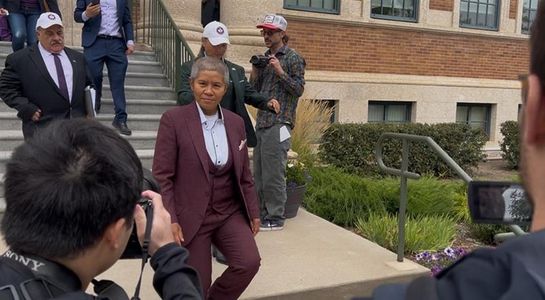Local News
Barber, Crown both file appeals in ‘Freedom Convoy’ case
Less than a month after Stewart Valley’s Chris Barber was sentenced for his involvement in the “Freedom Convoy,” both he and the Crown have filed appeals. Justice Heather Perkins-McVey sentenced Barber to an 18-month conditional sentence on Oct. 7 in Ottawa, following his convictions for mischief and counselling others to disobey a court order. The Crown says the trial judge made multiple legal and sentencing errors. Documents filed with the Court of Appeal for Ontario claim Perkins-McVey misinterpreted and misapplied the elements of intimidation under section 423(1) of the Criminal Code and mishandled the consideration of aggravating and mitigating factors. The Crown also argues the judge erred by imposing a concurrent sentence for counselling to disobey a court order and by delivering a sentence it describes as manifestly unfit. The Crown is seeking a conviction on the intimidation charge or, alternatively, a new trial. It is also seeking permission to appeal the sentence, asking the court to allow the appeal and impose a harsher sentence. Barber’s notice of appeal, filed with the same court, alleges the trial judge made multiple errors. These include misapplying section 430(7) of the Criminal Code, misapplying the principles of reasonable doubt, misapprehending evidence, and issuing unreasonable findings.. It also claims the judge failed to properly apply the defence of officially induced error and overemphasized aggravating factors while neglecting mitigating ones. Barber argues the court should have considered a discharge instead of a conviction. He is asking the court to overturn the convictions and enter acquittals, or, if that is denied, to order a new trial. He is also seeking permission to appeal the sentence, and if granted, for the sentence to be reduced. Following the sentencing on Oct. 7, Barber’s lawyer, Diana Magas, told reporters her client respected the judge’s decision. “He respects the judge’s decision,” she said. “They’re reasonable in our view and not appealable in terms of the sentences.”






